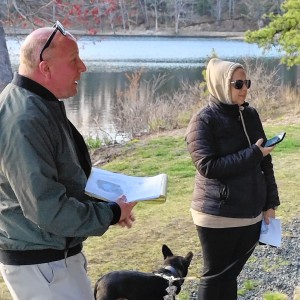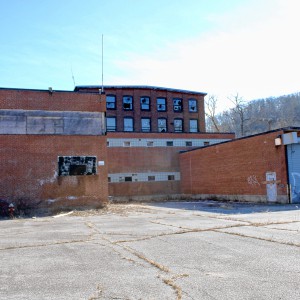My Turn: Another forgotten story of famine relief
| Published: 03-17-2023 3:34 PM |
William Lambers’ recent guest column about efforts to relieve the famine in Western and Central Europe in 1919 brought to mind another less well-known story of famine relief that deserves retelling [“A heroic woman fighting for the rights of children,” Recorder, March 8].
In April 1967, I and several other Americans were standing in the bar of the Intourist hotel in Yerevan, Armenia when a woman approached us and said that she had heard that a group of Americans had checked into the hotel. Speaking Russian, she said that we were the first Americans she had met since she was a child and that she had come to the hotel to thank us for saving her and her family from starving to death after the war.
“Which war?” someone asked.
“The Civil War, when the Bolsheviks won,” she replied.
As graduate students in Russian history, most of us knew that there had been a famine in the lower Volga region, eastern Ukraine, and the Caucasus region, including Armenia, in the early 1920s, but we did not understand why the woman wanted to thank Americans. When I looked into that question sometime later, I was astonished by what I found.
By most estimates, the famine of 1921-22 killed 6 million people and would certainly have killed many more had it not been for Herbert Hoover, the man who had organized and directed the famine relief efforts in Western and Central Europe in 1919. In 1921, Hoover set out to replicate those efforts in the starving territories under Bolshevik/Communist rule, though some Americans criticized him for doing so.
Hoover organized the American Relief Administration and the American Friends Service Committee to send food to the famine-stricken areas and distribute it to feed the hungry, one of whom must have been the woman who thanked us in Yerevan. The first shipments arrived in September 1921. By July 1922, the American relief effort was feeding 11 million people a day.
Lenin and the Bolshevik/Communist government tolerated the presence and activities of Hoover’s organizations, but they remained suspicious of them and spied on them. They never uttered a word of thanks or acknowledgment. In the Soviet Union, the American famine relief effort remained a non-event. Soviet historians and public media continually informed Soviet citizens of the American and allied intervention in support of anti-Bolshevik forces during the Civil War, but left them completely unaware of Hoover’s campaign to alleviate the famine of 1921-22.
Article continues after...
Yesterday's Most Read Articles
 Plan calls for upgrades to Silver Lake in Athol
Plan calls for upgrades to Silver Lake in Athol
 Magic comes to Red Apple in Phillipston
Magic comes to Red Apple in Phillipston
 Parents question handling of threat at Erving Elementary School
Parents question handling of threat at Erving Elementary School
 On The Ridge with Joe Judd: What time should you turkey hunt?
On The Ridge with Joe Judd: What time should you turkey hunt?
 Erving rejects trade school’s incomplete proposal for mill reuse
Erving rejects trade school’s incomplete proposal for mill reuse
 Orange man gets 12 to 14 years for child rape
Orange man gets 12 to 14 years for child rape
In America, Hoover’s heroic work was also ignored and forgotten for decades. The first researched book about it appeared in 2002. Good deeds may go unpunished, but in America they are more likely to go unnoticed and be forgotten. Remembering that Americans have done good deeds shows that we can do them and encourages us to do more.
Robert Jones is emeritus professor of history at the University of Massachusetts/Amherst, where he taught Russian history for 39 years. His most recent book is “From Brezhnev to Putin: An American Professor’s Adventures in Russia and the Soviet Union,” available locally at Off the Common Books in Amherst.

